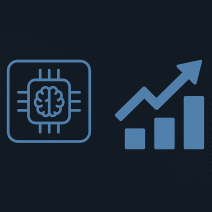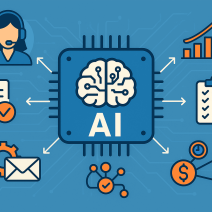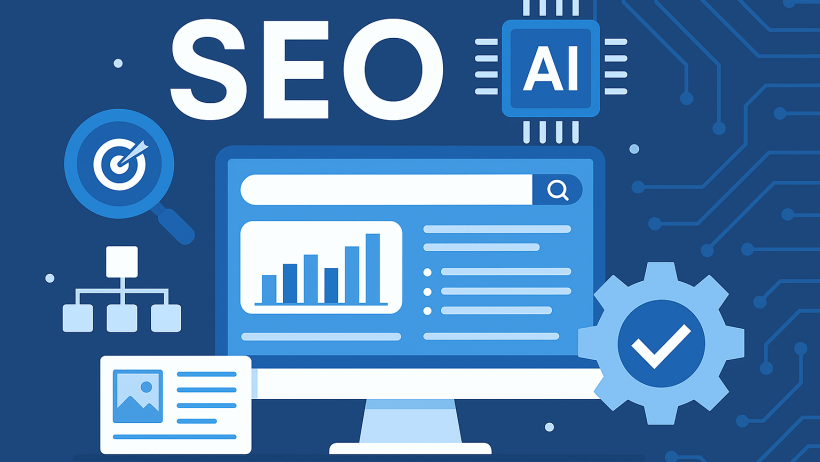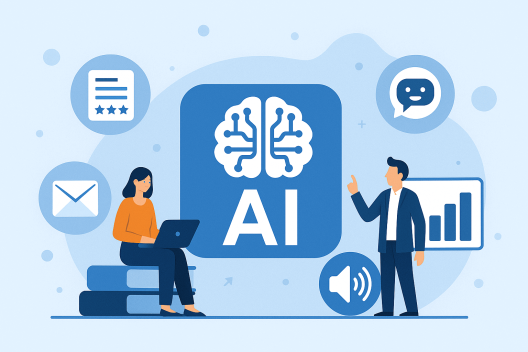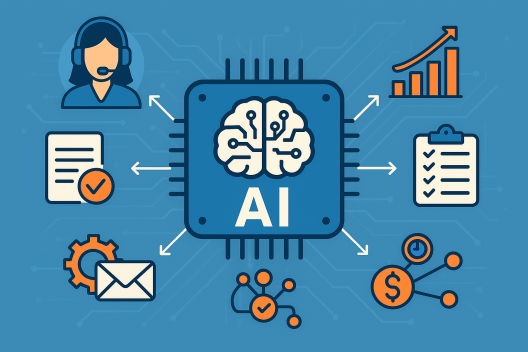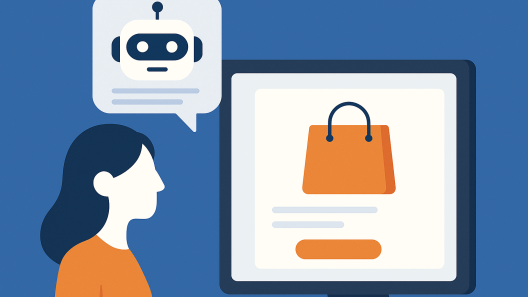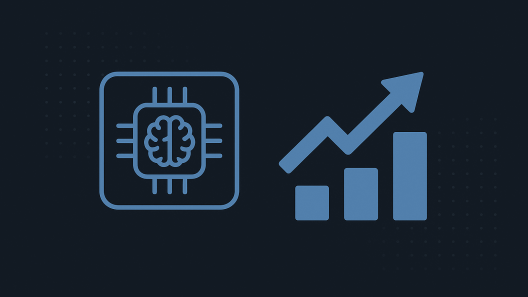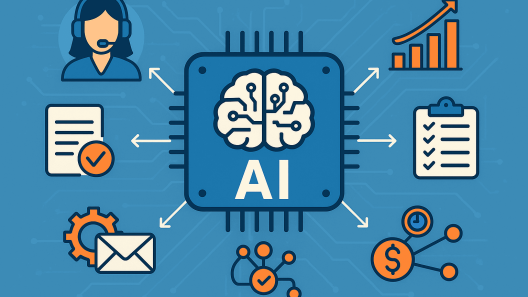In 2025, AI is no longer just a “nice-to-have” in search engine optimization — it’s the driving force behind smarter, faster, and more effective strategies.
With AI search engines evolving toward user-focused results, the old keyword-stuffing tactics are out. Instead, success now hinges on delivering clear, informative, and engaging content that matches search intent and demonstrates expertise, authoritativeness, and trustworthiness (E-E-A-T).
In this guide, we’ll explore AI-powered SEO strategies, the best AI SEO tools, and actionable tips to future-proof your rankings in 2025.
Why AI Is Transforming SEO in 2025
AI tools can:
- Automate repetitive SEO tasks like keyword clustering, internal linking, and content scoring.
- Analyze large datasets to uncover opportunities faster than human research alone.
- Personalize content to user intent, improving relevance and engagement.
But here’s the key — human creativity and insight remain essential for ensuring quality, originality, and brand voice.
Key AI SEO Strategies for 2025
1. Content Optimization with User Intent in Mind
In 2025, Google’s algorithms reward semantic search relevance over exact keyword matches.
- Use AI keyword research tools like SEMrush or Ahrefs to find related queries and search intent variations.
- Focus on readability — AI-powered writing assistants (e.g., Grammarly, Jasper) can help ensure your content is clear and well-structured.
- Naturally integrate LSI keywords to signal topic depth.
2. Implement Schema Markup for Rich Results
Schema markup helps search engines understand your content and can improve click-through rates by adding rich snippets to search results.
- Use Google’s Structured Data Markup Helper to create schema for articles, FAQs, products, and reviews.
- AI tools like Rankability or Manis.ai can help automate schema deployment across large sites.
3. AI-Powered Content Creation — with a Human Touch
AI writing tools (e.g., Surfer SEO, Genspark.ai) can draft articles, but avoid publishing them raw.
- Edit and enhance with your own examples, stories, and brand tone.
- Add expert quotes or personal insights to boost E-E-A-T signals.
- Avoid over-reliance on generic AI phrasing to maintain authenticity.
4. Monitor and Improve Backlink Quality
AI tools can quickly analyze your backlink profile and suggest improvements.
- Use Ahrefs to identify toxic links and potential disavow targets.
- Use AI to find contextually relevant backlink opportunities based on competitors’ link profiles.
5. Performance Tracking and AI Analytics
AI-powered SEO analytics platforms can:
- Track ranking fluctuations in real time.
- Measure content performance and keyword movement.
- Recommend optimization steps automatically.
Tools to consider: SEMrush Position Tracking, Surfer SEO Audit, Google Search Console Insights.
6. Conversational SEO for AI Search Tools
With AI assistants like ChatGPT Search, Perplexity AI, and Google’s AI Overviews shaping search habits, optimizing for natural language queries is vital.
- Include FAQ sections with conversational phrasing.
- Use headings that mirror voice search queries (e.g., “What’s the best AI tool for SEO in 2025?”).
7. Prioritize E-E-A-T for AI and Human Reviewers
AI-driven ranking systems increasingly reward sites that demonstrate:
- Expertise — content written or reviewed by industry experts.
- Authoritativeness — strong backlink profiles from trusted sources.
- Trustworthiness — accurate, well-cited, and transparent information.
Best AI SEO Tools for 2025
| Tool | Best For | Key AI Features |
|---|---|---|
| SEMrush | Keyword research, competitor analysis | Keyword clustering, SERP analysis |
| Ahrefs | Backlink analysis | Link gap analysis, broken link alerts |
| Surfer SEO | On-page optimization | NLP-driven content scoring |
| Rankability | Schema & content optimization | AI-powered topic modeling |
| Manis.ai | Internal linking automation | Context-aware link suggestions |
| Genspark.ai | AI-assisted writing | SEO-focused drafts |
| Google Structured Data Markup Helper | Schema markup | Step-by-step tagging wizard |
Best Practices for AI SEO Success
- Define Clear SEO Goals
Set measurable objectives that align with your business — e.g., “Increase organic traffic by 30% in 6 months.” - Humanize AI Content
Personalize AI drafts with your tone, customer stories, and original data. - Stay Updated with AI Trends
SEO and AI evolve rapidly — subscribe to industry news and test new tools often. - Monitor and Adapt
Regularly review analytics and adjust strategies based on performance data.
Final Thoughts
In 2025, AI SEO isn’t about replacing human marketers — it’s about augmenting their skills.
By combining AI-powered efficiency with human creativity and expertise, small businesses and large brands alike can achieve higher rankings, better engagement, and more conversions.
If you’re not already using AI in your SEO workflow, now’s the time to start — because your competitors almost certainly are.
FAQ: AI for SEO in 2025
AI is shifting SEO from keyword-heavy strategies to user-intent-driven optimization. Search engines now evaluate content quality, relevance, and E-E-A-T (Expertise, Authoritativeness, Trustworthiness), making it essential to create well-structured, helpful, and engaging content that AI algorithms can easily understand.
No — AI will enhance SEO roles, not replace them entirely. AI can automate repetitive tasks like keyword clustering, content scoring, and backlink monitoring, but human creativity and strategy remain vital for storytelling, branding, and relationship building.
The best AI SEO tool depends on your goals:
SEMrush for keyword research and competitor tracking.
Surfer SEO for content optimization using NLP analysis.
Ahrefs for backlink analysis and link-building opportunities.
Rankability for schema markup and topic modeling.
Small businesses can use AI to:
Identify high-value keywords using SEMrush or Ahrefs.
Optimize content with Surfer SEO’s content score.
Automate internal linking with Manis.ai.
Track rankings in real time with AI-powered analytics.
Conversational SEO is about optimizing content for natural language queries, such as voice search and AI assistant interactions. In 2025, tools like Google’s AI Overviews and ChatGPT Search rely heavily on conversational formats, so adding FAQ sections and question-based headings is critical.
AI tools like Ahrefs and SEMrush can identify toxic backlinks to disavow and suggest high-authority websites for outreach. This ensures your backlink profile is strong, relevant, and trusted by search engines.
Yes — when used correctly. AI-generated drafts should be reviewed, edited, and enhanced with your unique insights, brand tone, and expert opinions to avoid generic output and ensure it meets SEO quality standards.

